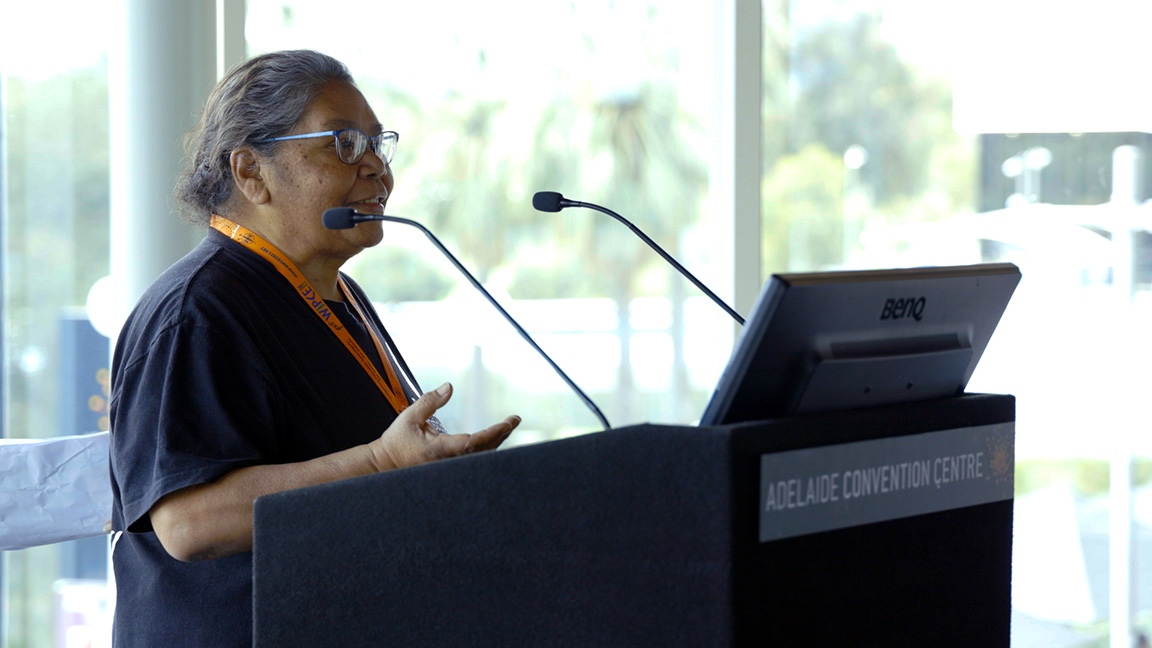

The Nawarddeken Academy based in West Arnhem Land, NT, offers a unique model of education in remote communities. First formed in 2015 as a single classroom, the Academy now operates three schools, each with up to 20 students, two permanent teachers, and several teaching assistants.
A new report, Evaluation of Nawarddeken Academy, represents the culmination of three years’ work with the Academy and the homelands of Kabulwarnamyo, Mamadawerre and Manmoyi. Batchelor Institute’s Assoc Prof John Guenther and Mamu/Djirribal woman Dr Robyn Ober led the project, working alongside a team of Bininj community-based researchers.
The purpose of the report was to learn from the school’s governance, academic and community engagement processes, to understand what the future might look like, and how to achieve what the community wants to see in their schools in the Warddeken homelands.
The evaluation, which was also supported by the Karrkad Kanjdji Trust, found strong aspirations for education, along with expectations that young people will benefit from learning with Kunwinjku language and support for cultural values. It highlighted the Academy’s integrated teaching and learning, whereby students draw on both the national curriculum and Bininj knowledge.
The research team initially met up in Darwin to prepare for the project and hone their interview techniques. All of the data collection was later carried out during facilitated discussions and yarning circles on Country. Assoc Prof Guenther and Dr Ober were able to accompany the local researchers as they conducted interviews, joining the men’s groups and women’s groups, respectively.
Both fluidity and flexibility are key in doing research in remote communities, Dr Ober said, along with relationships, respect, and reciprocity. Ultimately, the goal was to ensure that the research process remained in the hands of community members, Dr Ober added, while she and Assoc Prof Guenther guided the process and oversaw the final output—namely, the evaluation report.
With the Academy’s innovative approach offering bicultural, community-driven education, the report outlines how students are supported to strengthen their identity, culture, and language.
“Bininj people know their community, their children, their Country,” said Dr Robyn Ober. “Elders had a dream for their children to grow up on Country and to grow up strong in their culture and identity, as well as in English and Kunwinjku literacy and numeracy.”
Elders also recognised the importance of working on Country in their homelands, which led to a vision for the future in which children can follow in the footsteps of community leaders, Dr Ober explained. The idea of “who’s coming behind” is a key concept in the educational model which empowers, trains, and mentors young community members. The result is proud and confident students who “know who they are” and are able to “move between both worlds,” Dr Ober added.
Community-based researchers Conrad Maralngurra and Dean Yibarbuk, Nawarddeken Academy Principal Olga Scholes, and Dr Ober presented the project at the World Indigenous Peoples’ Conference on Education held in Tarndanya (Adelaide), SA, in September 2022, with the work providing an insight into what a both-ways educational model looks like in practice. Assoc Prof Guenther and Mr Maralngurra will also be presenting at the Education Association of South Africa conference in Cape Town in January 2023.
The report also continues to build on Batchelor Institute’s reputation for delivering high-quality, culturally appropriate research and evaluation outputs in the Territory—outputs which have tangible benefits for First Nations peoples.
